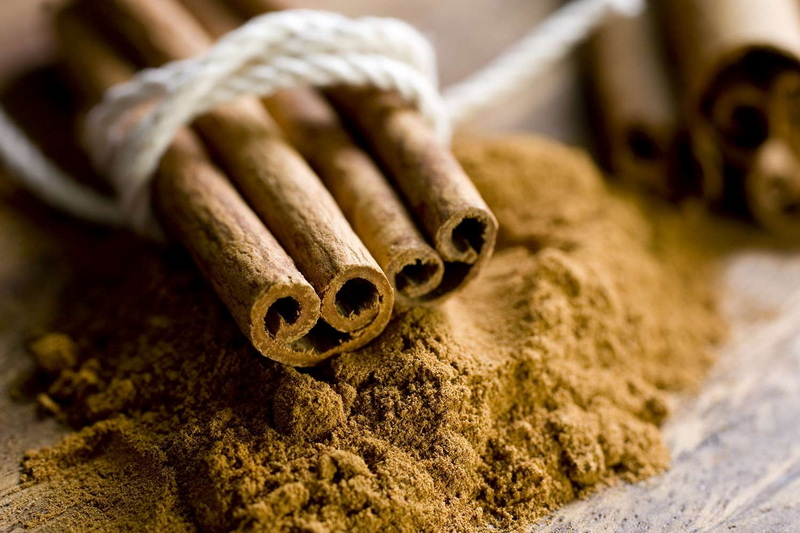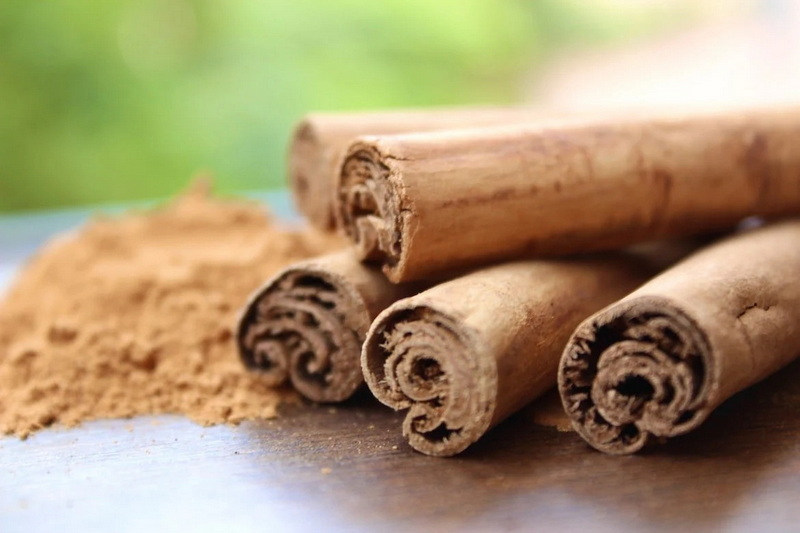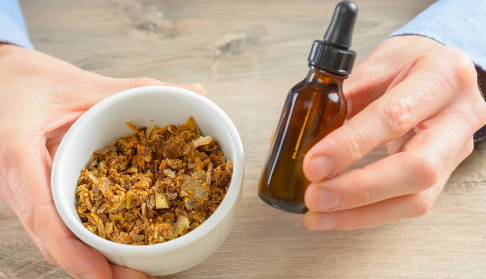Content Menu
● Introduction to Cinnamon Bark Extract
>> Antimicrobial Properties
>> Anti-Inflammatory Effects
● Comparison with Other Herbal Extracts
>> Turmeric Extract
>> Ginger Extract
>> Green Tea Extract
● Potential Health Benefits of Cinnamon Bark Extract
● Applications in Food Preservation
● Safety Considerations
● Future Research Directions
● Historical Use of Cinnamon
● Cultural Significance
● Modern Applications Beyond Health
● Environmental Impact
● Economic Impact
● Conclusion
● FAQs
>> 1. What are the primary bioactive compounds in cinnamon bark extract?
>> 2. How does cinnamon bark extract compare to other herbal extracts in terms of antimicrobial activity?
>> 3. Can cinnamon bark extract help manage blood sugar levels?
>> 4. What are the potential risks of consuming high doses of cinnamon bark extract?
>> 5. How can cinnamon bark extract be used in food preservation?
● Citations:
Cinnamon bark extract has been widely recognized for its numerous health benefits, ranging from anti-inflammatory properties to potential cancer prevention. This article will delve into the advantages of cinnamon bark extract compared to other herbal extracts, exploring its unique properties and potential applications.

Introduction to Cinnamon Bark Extract
Cinnamon bark extract is derived from the bark of the Cinnamomum verum tree, commonly known as Ceylon cinnamon. It is renowned for its rich content of bioactive compounds, particularly cinnamaldehyde, which is responsible for its distinct flavor and aroma. This compound has been shown to possess significant antimicrobial, anti-inflammatory, and antioxidant properties.
Antimicrobial Properties
Cinnamon bark extract has demonstrated potent antimicrobial activity against a variety of bacteria and fungi. Studies have shown that extracts prepared with alcoholic solvents, such as absolute ethanol, exhibit higher antimicrobial efficacy compared to aqueous extracts. This makes cinnamon bark extract a promising natural preservative for food products.
Anti-Inflammatory Effects
Cinnamon bark extract is also known for its anti-inflammatory properties, which can help mitigate chronic inflammation associated with various diseases, including heart disease and diabetes. The anti-inflammatory compounds in cinnamon may reduce inflammation markers and improve overall health.
Comparison with Other Herbal Extracts
While many herbal extracts offer health benefits, cinnamon bark extract stands out due to its broad spectrum of bioactive compounds and their synergistic effects.
Turmeric Extract
Turmeric extract, rich in curcumin, is another potent anti-inflammatory agent. However, its bioavailability is generally lower compared to the compounds in cinnamon bark extract. Cinnamon's cinnamaldehyde is more stable and has a broader range of antimicrobial activities.
Ginger Extract
Ginger extract is known for its digestive benefits and anti-inflammatory properties. However, it lacks the antimicrobial potency of cinnamon bark extract, making cinnamon more versatile in applications such as food preservation.
Green Tea Extract
Green tea extract is rich in antioxidants and has been linked to heart health and weight management. While it offers significant health benefits, its antimicrobial properties are not as pronounced as those of cinnamon bark extract.

Potential Health Benefits of Cinnamon Bark Extract
Cinnamon bark extract has been associated with several potential health benefits, including:
- Blood Sugar Management: It may help regulate blood sugar levels by improving insulin sensitivity.
- Heart Health: Cinnamon can reduce cholesterol and triglyceride levels, contributing to heart health.
- Cancer Prevention: Some studies suggest that cinnamon extract may inhibit cancer cell growth and angiogenesis.
- Neuroprotective Effects: It may help prevent Alzheimer's disease by reducing amyloid beta plaques.
- Digestive Health: Cinnamon has been traditionally used to alleviate digestive issues due to its carminative properties.
Applications in Food Preservation
Cinnamon bark extract's antimicrobial properties make it an effective natural preservative for food products. It can be used to extend the shelf life of perishable foods by inhibiting the growth of bacteria and fungi.
Safety Considerations
While cinnamon bark extract is generally safe, high doses can be toxic due to the coumarin content, particularly in Cassia cinnamon. Ceylon cinnamon has lower coumarin levels and is generally safer for consumption.
Future Research Directions
Future studies should focus on optimizing extraction methods to enhance bioavailability and exploring synergistic effects with other herbal extracts. Additionally, clinical trials are needed to confirm the efficacy of cinnamon bark extract in managing chronic diseases.
Historical Use of Cinnamon
Cinnamon has been used for centuries in traditional medicine and culinary practices. Its warm, aromatic flavor has made it a staple in many cuisines around the world. Historically, cinnamon was highly valued for its preservative properties and was used to flavor and preserve meats.
Cultural Significance
In many cultures, cinnamon is not only a spice but also holds symbolic meanings. For example, in ancient Egypt, cinnamon was used in embalming processes due to its preservative properties. In modern times, cinnamon is often associated with warmth and comfort, commonly used in baking and cooking during holidays.
Modern Applications Beyond Health
Beyond its health benefits, cinnamon bark extract is also used in cosmetics and perfumery due to its pleasant aroma and potential skin benefits. It can be found in skincare products aimed at reducing inflammation and improving skin texture.
Environmental Impact
The cultivation and harvesting of cinnamon trees can have environmental implications. Sustainable practices are essential to ensure that cinnamon production does not harm ecosystems. Efforts are being made to promote eco-friendly cinnamon farming methods.
Economic Impact
Cinnamon is a significant crop for many countries, contributing to local economies through export and domestic consumption. The demand for cinnamon bark extract is increasing due to its health benefits, which can boost economic growth in regions where it is cultivated.
Conclusion
In conclusion, cinnamon bark extract is a versatile natural product with a wide range of applications, from health benefits to food preservation and cultural significance. Its unique properties make it an attractive option for those seeking natural alternatives in various industries.

FAQs
1. What are the primary bioactive compounds in cinnamon bark extract?
Cinnamon bark extract primarily contains cinnamaldehyde, which is responsible for its antimicrobial and anti-inflammatory properties.
2. How does cinnamon bark extract compare to other herbal extracts in terms of antimicrobial activity?
Cinnamon bark extract exhibits potent antimicrobial activity, particularly when extracted with alcoholic solvents, making it more effective than many other herbal extracts in this regard.
3. Can cinnamon bark extract help manage blood sugar levels?
Yes, cinnamon bark extract may help regulate blood sugar levels by improving insulin sensitivity, although more research is needed to confirm its efficacy.
4. What are the potential risks of consuming high doses of cinnamon bark extract?
High doses of cinnamon bark extract can be toxic due to its coumarin content, especially in Cassia cinnamon. Ceylon cinnamon has lower coumarin levels and is generally safer.
5. How can cinnamon bark extract be used in food preservation?
Cinnamon bark extract can be used as a natural preservative due to its antimicrobial properties, extending the shelf life of food products by preventing microbial contamination.
Citations:
[1] https://www.webmd.com/diet/supplement-guide-cinnamon
[2] https://www.scielo.br/j/rbca/a/YT3zYykmF3Dr8kSJgdLR8Lt/
[3] https://www.bbcgoodfood.com/health/nutrition/health-benefits-cinnamon
[4] https://www.greenjeeva.com/blog/cinnamon-powder-extract-powder-comparison-guide
[5] https://www.webmd.com/diet/health-benefits-ceylon-cinnamon
[6] https://www.botaniex.com/which-is-more-effective-cinnamon-bark-or-cinnamon-root-extract.html
[7] https://draxe.com/nutrition/health-benefits-cinnamon/
[8] https://www.honest-rare.de/en/magazine/cinnamon-ceylon-vs-cassia/






























